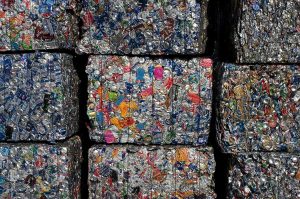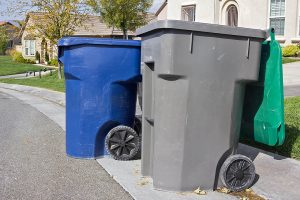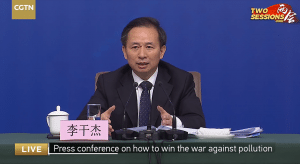 Chinese officials have accused the U.S. of hypocrisy for denigrating the scrap imports ban amid a brewing trade war between the two nations.
Chinese officials have accused the U.S. of hypocrisy for denigrating the scrap imports ban amid a brewing trade war between the two nations.

 Chinese officials have accused the U.S. of hypocrisy for denigrating the scrap imports ban amid a brewing trade war between the two nations.
Chinese officials have accused the U.S. of hypocrisy for denigrating the scrap imports ban amid a brewing trade war between the two nations.
 After wounding U.S. exports of scrap paper and plastics, China is now preparing to cripple recovered aluminum shipments. This time, the justification isn’t environmental protection but tariff retaliation.
After wounding U.S. exports of scrap paper and plastics, China is now preparing to cripple recovered aluminum shipments. This time, the justification isn’t environmental protection but tariff retaliation.
 The Closed Loop Fund will loan up to $5 million in Connecticut this year to improve recycling infrastructure.
The Closed Loop Fund will loan up to $5 million in Connecticut this year to improve recycling infrastructure.

Li Ganjie, China’s minister of environmental protection
China’s top environmental official has quantified the reduction in scrap materials flowing into the country as a result of recent restrictions. He also spoke publicly about the market fallout and the criticism China has received for enacting its reforms.

Last year presented an upheaval in the global recovered plastics market, and the impacts continue to roll in. Three experts recently shared their thoughts on the specific causes of the volatility.
 Materials diversion was celebrated around the world on Sunday, when the first Global Recycling Day was observed with events in several cities and statements released online.
Materials diversion was celebrated around the world on Sunday, when the first Global Recycling Day was observed with events in several cities and statements released online.

The refillable bottle produced by O-I is offered in two sizes. Photo courtesy of Oregon Beverage Recycling Cooperative.
A glass bottle reuse program in Oregon has taken major steps forward, with glass giant Owens-Illinois creating a standardized refillable bottle for breweries and long-term plans for a wash facility moving forward.
 Mixed-paper has hit an all-time price low, with each ton trading for just $5. Downward pricing has also been seen with other fibers, but plastics have shown increasingly strong values lately.
Mixed-paper has hit an all-time price low, with each ton trading for just $5. Downward pricing has also been seen with other fibers, but plastics have shown increasingly strong values lately.

Officials in China have announced an enforcement campaign to implement the country’s new import restrictions.
 Steel and aluminum imports have been singled out by the White House, and though plenty of questions linger about the development, prices for recyclables could jump in the short term.
Steel and aluminum imports have been singled out by the White House, and though plenty of questions linger about the development, prices for recyclables could jump in the short term.
